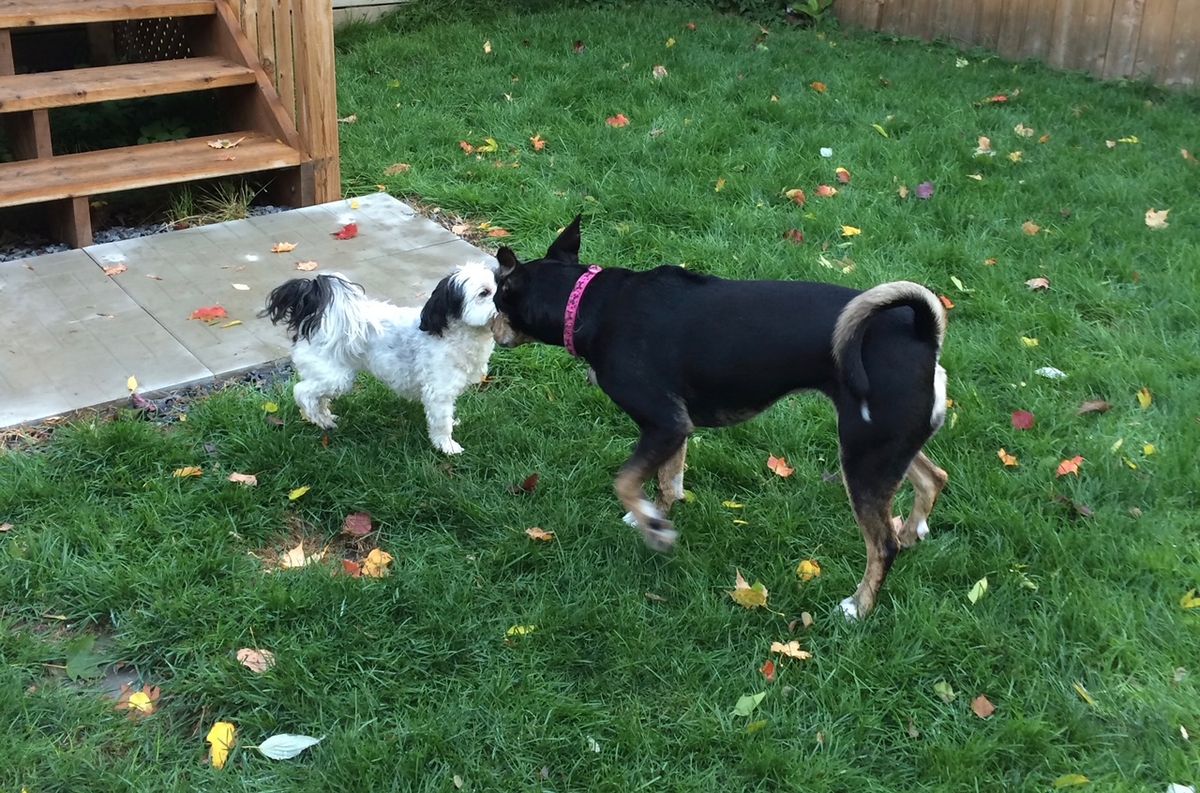Help keep dogs out of shelters Part VI: Understand why mixed breeds are not pure breeds and why this matters!

Welcome to the final issue of this series! Up to now, you have learned what puppy mills and backyard breeders are, why they should be avoided, and how to find high quality pure bred dog breeders.
In this final article, you will understand the differences of between mixed breeds and pure breeds.
Understand why mixed breed puppies are not pure breeds and why this matters!
According to Wikipedia, “A mixed breed is a domesticated animal descended from multiple breeds of the same species, often breeding without any human intervention, recordkeeping, or selective breeding.”
To clarify, a mixed breed dog is the offspring of two parents that are NOT of the same pure breed, in contrast to purebred dogs which are from the same pure breed. There are advantages to going either way. Only you can decide which type of pet will be the right addition to your family. To help you decide, PetMD compares the various advantages of owning a mixed breed versus advantages of owning a purebred.
What’s the problem with dogs that are not purebreds?
Just like with puppy mills and backyard breeders, mixed breeds from any source will produce unpredictable genetics.
MIXED BREEDS CAN HAVE UNEXPECTED TEMPERAMENTS
For example, let’s say you buy a Golden-Doodle (Golden Retriever mixed with Poodle) because you wanted a dog with the temperament of Golden Retriever but have the non-shedding aspect of the Poodle. But there is no guarantee the puppies from Golden Doodle parents will have any particular temperament because the parents have mixture of genes from previous generations.
MIXED BREEDS CANNOT GUARANTEE THE DOG WON’T SHED
With a Golden-Doodle, there is no guarantee what percentage of the dog’s breed is Golden Retriever and what percentage of the dog consists of the Poodle.
No matter what the “breeder” tells you about the percentage of Golden Doodle vs Poodle for one or more generations, it doesn’t matter. Because each of the earlier generational parents were bred with uncontrolled genetic selection.
BEST-CASE SCENARIO
With the best case scenario, it might be 50%-50% of Golden retriever vs Poodle. And that means there will be some shedding. And because when the puppies are not purebred poodle, the puppies will shed to some degree anyway no matter what!
Only purebred non-shedding breeds will not shed: Here are a few examples. Poodle, Shitzu, Coton De Tulear, Havanese and Tibetan Terrier.
Purebreds that are “overbred”can have health problems too
OVER BREEDING
Yes there’s a serious problem of health issues associated with some true pure- bred dogs because popular breeds have definitely been overbred.
Overbreeding involves breeding closely-related dogs, or those with too many genetic similarities over a number of generations. And that can often perpetuate breed-specific health problems, like hip dysplasia in German Shepherds or breathing problems in Pugs and French Bulldogs. Over the past several decades, people have been drawn to specific breeds that are most popular at the moment. And over breeding has occurred simply to meet the public’s high demand of popular breeds. So some purebred dogs can definitely have health and other problems.
HIGH-QUALITY BREEDERS DO NOT OVER BREED
However, a true high-quality breeder of purebreds will scout the world for new health-tested genetic lines of their breed to avoid falling into this trap. So, you need to be patient and do your research to find such a breeder, thus ensuring that you are getting a well-bred purebred puppy, if a purebred is what you are after. You can recognize a high-quality breeder because they thoroughly understand and are able to document the ancestry of their puppies. They will have references also for you to check. Don’t avoid this step!
Have your puppy scanned for a pre-existing microchip
Make sure to have your puppy scanned at your veterinarian clinic for a pre-existing microchip. This is imperative before you have a new microchip injected into your puppy.
WHAT TO DO IF THERE IS A MICROCHIP FOUND
If there is an existing microchip, then it’s possible that the puppy was stolen. And then the original owner’s microchip can identify that owner.
Of course it will be upsetting for you to find out if you have purchased a stolen puppy! But it’s possible that the original owner has been frantically looking for their lost or stolen dog and would love to find him!
You will need to investigate how this happened. And then you might need to return the puppy to the original owner if they were innocent in the matter. Because wouldn’t you want someone to return your dog to you in such circumstances?
If there is no microchip found, then you have no way of knowing if this animal had a previous owner. Because the original owner might not have troubled to microchip the dog.
By taking this step when your pet first comes home, you can rest assured that you checked and you are the puppy’s forever parent! And don’t forget to microchip your new puppy with your contact information so he can be reunited with you should he ever be lost.
HIGH-QUALITY BREEDERS OFTEN MICROCHIP THE DOG FOR YOU
Sometimes good-quality breeders microchip the puppy with your identity in advance, and will let you know. So by scanning the puppy at your vet, you can confirm it was done. But do check that all your contact information was registered correctly to your puppy’s microchip number.
Read More before getting a dog:
How to find good quality dog rescue agencies, 5 Things to know before getting a dog, Understanding dog behaviour, and Budget for expenses before getting a dog.
Things to help you with your new puppy:
Once you have purchased your purebred puppy from a high-quality breeder, learn about dog nutrition, maintaining your microchip contact information, seasonal flea and tick prevention, and other helpful tips to raise your puppy on my blog!
Yours in better dog care, Judy
Originally Published September 30, 2020 on Happiestdogsever.com





Comments ()